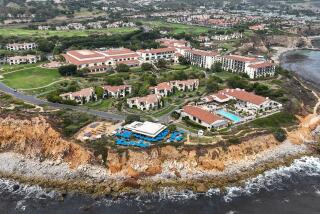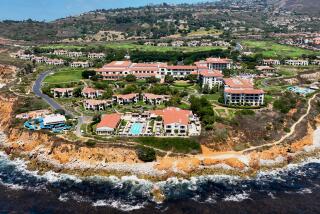COMMENTARY : The Jig Is Up in Gingrich GOPAC Scam : A federal panel charges that the speaker’s political action committee subverted the law.
- Share via
The Federal Election Commission has got Newton Leroy Gingrich cold. The commissioners, all but one of whom were appointed by Republican presidents, blasted the GOP Action Committee, which Gingrich headed, for deliberately subverting election law.
According to the commission, Gingrich used GOPAC as a personal slush fund to save his 1990 campaign, which he won by 974 votes. GOPAC paid his American Express fees, put him up in the fanciest hotels and provided his campaign with consultants to, in the words of one advisor, “help Newt think.” Internal GOPAC memos admit that “Newt support” cost the organization $250,000 in 1990 and that “helping Newt” was “probably the most single high priority we’ve got in dollars.”
By not registering as a federal political action committee, Gingrich and GOPAC violated the legal requirements to disclose the names of contributors who provide more than $200, limit individual contributions to $5,000 and ban corporate contributions. Instead, the commission found that GOPAC accepted millions of dollars in secret contributions from individuals and corporations in a concerted and successful campaign to seize control of Congress.
Gingrich has always insisted that he provided no political favors in return for the huge contributions his organization obtained. But 5,000 pages of GOPAC documents released by the commission provide further proof that his big contributors expected a return on their investment in the Gingrich revolution.
Take the exchange of letters between Gingrich and Miller Nichols, the former chairman of the J.C. Nichols Co., a national real estate firm. On Jan. 19, 1990, Nichols wrote a “Dear Newt” letter “replying to your letter of Dec. 19, 1989, in which you solicited our continued support and I am pleased to respond favorably and enclose my check to GOPAC in the amount of $10,000. For your information, I list below my record of giving since 1985. My total support . . . equals $59,000.”
The letter closes with a plea: “The federal government is causing the J.C. Nichols Co. . . . a great deal of financial distress. This is in connection with the asbestos regulations. . . . It is costing my company millions and millions of dollars to comply with federal regulations.” Gingrich wrote back, assuring Miller that he would “look into” the “problematic asbestos regulations.” There was no mention that asbestos is a killer.
The GOPAC files released do not indicate what further action Gingrich took on this matter. But in an April 24, 1991, letter, which I obtained, Gingrich wrote to William K. Reilly, the administrator of the Environmental Protection Agency, raising Nichols’ concerns: “I am writing you with concern over the crisis that is arising in our courts from asbestos litigation.” A notation indicates that a copy was sent to Nichols.
This is a blatant violation of the Ethics in Government Act of 1989, which states, “No member of Congress shall solicit or accept anything of value from a person . . . whose interests may be substantially affected by the performance or nonperformance of the individual’s official duties.”
Add this to the long list of possible Gingrich violations that includes favors for major donors from the cement, textile and telecommunications industries. Yet for 10 months, the Republican-dominated House Ethics Committee has been stonewalling the investigation.
The FEC documents help explain why: Four of the five members of the Republican majority on the Ethics Committee were involved with GOPAC’s suspect activities. The files reveal that committee chair Nancy Johnson (R-Conn.) was active in GOPAC during the period in which the FEC claims the organization was breaking the law. One of her main campaign contributors also gave GOPAC $192,000.
How can Johnson claim to impartially investigate Gingrich’s activities with GOPAC when she was a participant in the very decisions that are now being challenged as unethical? Clearly, a special prosecutor is called for.
One of GOPAC’s main tactics was to attack the “sleazy behavior of House Democrats, including Speaker Wright.” Texas Democrat Jim Wright was forced out of the speaker’s position and Congress on the basis of ethics charges pushed by Gingrich.
Back then, Gingrich demanded that the speaker be judged by the highest standards: “The rules normally applied by the Ethics Committee to an investigation of a typical member are insufficient in an investigation of the speaker . . . the second most powerful elected position in America. Clearly this investigation has to meet a higher standard of public accountability.”
Amen.
More to Read
Get the L.A. Times Politics newsletter
Deeply reported insights into legislation, politics and policy from Sacramento, Washington and beyond. In your inbox twice per week.
You may occasionally receive promotional content from the Los Angeles Times.










